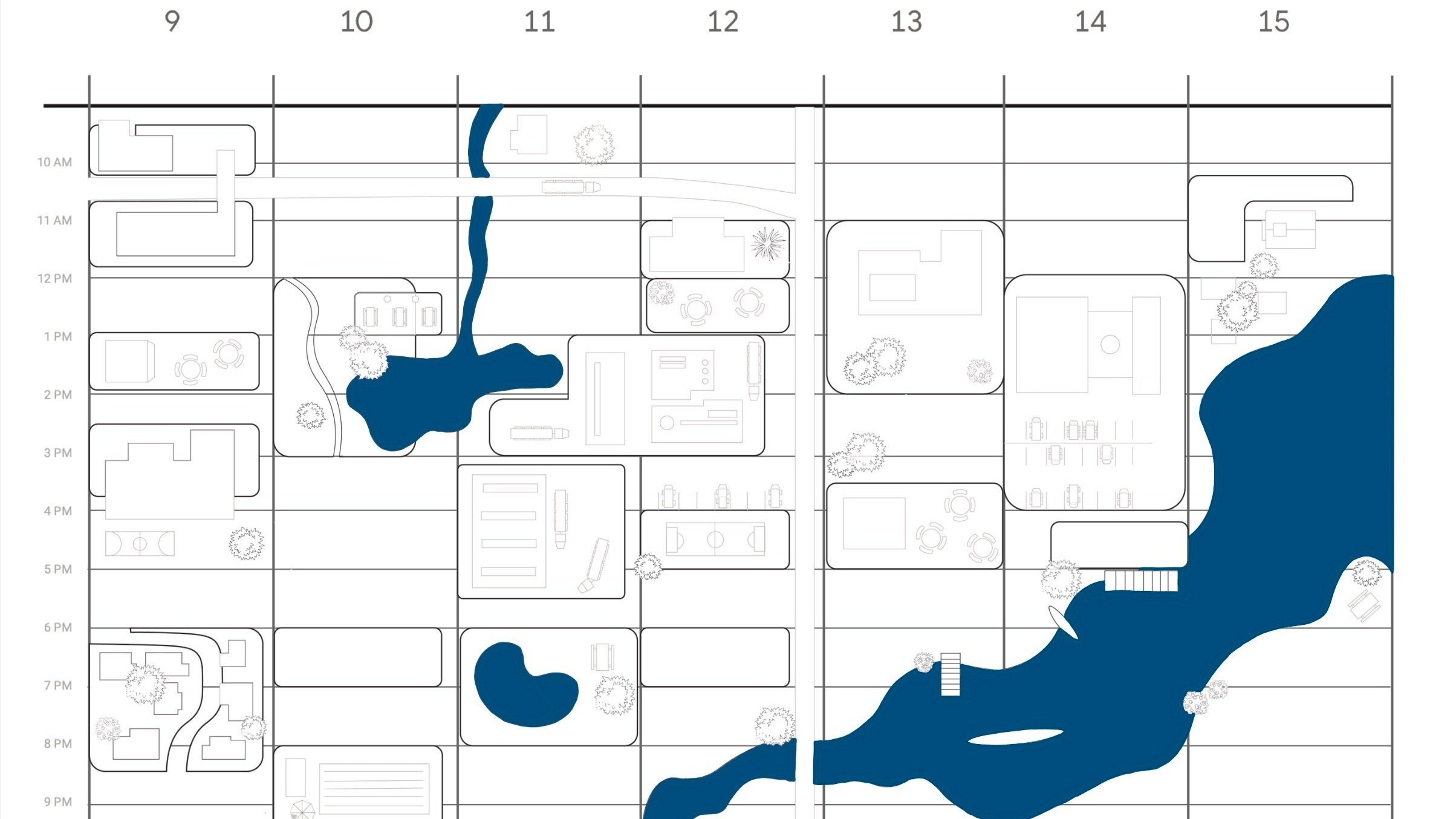We Can Do Better Than Work-Life Balance
December 27, 2022 | By Shayley Martin DC ‘22
image description: young girl and woman working in textile factory
The ideal of work-life balance is as old as the Industrial Revolution. Yet, major health research labs and news outlets still regularly churn out articles on it. Professionals and students alike have accepted it as a key component of well-being. Work-life balance tips abound at Yale. Here are some I’ve heard: Don’t work in your bed. Reserve mealtimes for chatting with friends, not doing readings. Schedule fun activities so you won’t fill all your time with work.
These are good tips, and they all get at the obvious truth that we shouldn’t be working all the time. But I’ve started to question whether work-life balance is really the type of balance we should be striving for. For many college students, work ends when we shut our laptops, even if emails and stress still lurk in the back of our minds. The same goes for some professionals. But we’re part of a tiny minority of people––both today and throughout history––who have lived in a way that allows a relatively neat separation between work and the rest of life.
Here’s an example: my great-grandmother was a subsistence farmer. On a normal day, she did farm work and housework, washed clothes by hand, cooked, and played guitar for a little while by candlelight, before going to bed and starting over. She earned no salary––who can say which part was her work and which was her life? She would have been confused by my schedule, in which running water and grocery stores and donations for the liberal arts allow me to separate work from the rest like oil from water.
She lived nearly a hundred years ago, but a work-life balance still doesn’t map elegantly onto many people’s lives. What is work-life balance for a stay-at-home parent? What is it for a working parent who manages a career alongside shuttling and housework? What is it for someone who’s a caregiver for family members?
And what will work-life balance mean to us after college? Those of us who can neatly separate work and life will have the illusion of balance. We might think that simply by limiting our hours at work, we can make room to enjoy the rest of our lives.
But we, like everyone else, will find out that it’s quite possible to have both work (paid or unpaid) and a bustling non-work life but to lack something crucial: rest. Self-care regimens and sleep apps pop up all the time because, even outside official work hours, it’s not people’s natural tendency to take the rest we need. We have to be reminded; we have to set routines.
I would have thought it was inevitable––a lifelong neglect of rest, a lifetime of battling exhaustion with a few superficial solutions but no real end in sight––if not for God’s instruction in the Hebrew Bible. There, God says people are designed for work-rest balance. Not work-life balance. Work and rest are out of whack now, but God has spent human history working toward giving us a) the mindset and b) the opportunity to rest.
First, the mindset. The very first chapter of the Bible sets a precedent for work-rest balance. God spent six days making the world, then spent a day resting. Later, as God led the Israelites out of slavery and to another, promised land, He laid out how He wanted them to live once they got there. After generations of slavery, they were free. They could do what they wanted. But God put a constraint on them before they even reached their new homeland: they had to rest one day of every seven. Specifically, He commanded, “you must deny yourselves and not do any work”––they had to fight their natural inclination to go on working. (Leviticus 16:29-30)
And God specified, lest anyone try to sneak work in, that He made no distinction between unpaid work (i.e. the farming that most of the Israelites did) and paid work, or between the work traditionally done by men or women. Cooking was work (Exodus 16:23); it had to be done before the Sabbath. On the seventh day, everything had to stop.
And beyond simply limiting their working time (the strategy implied in “work-life balance”), God told the Israelites to carefully protect a time for rest. When He or a prophet reminded the Israelites not to work on the Sabbath (the seventh day), they used a verb, shamar, that literally means to ‘guard’ or ‘keep’ the Sabbath. And it was not an empty time: the main event of the Sabbath was a temple service in which priests made burnt offerings (Numbers 28:9-10). Burnt offerings represented atonement for sins and signaled the Israelites’ closeness to and relationship with God. Basically, God had His people abstain from other activities in order to spend time with Him and restore their strength.
That’s the mindset for rest, but it’s not much use without the opportunity for rest, something God also longs for us to have. His desire to give us this opportunity to rest is apparent in another feature of His order to keep the Sabbath. Rather than simply mandating that each Israelite see to their own rest, God points out a fact we can still see in everyday life: rest is not an individual pursuit, but a communal one. Versions of the Sabbath commandment, one of the Ten Commandments, appear in both Exodus and Deuteronomy. In Exodus, the first giving of the law, God explains this communal rest:.
“Six days you shall labor and do all your work, but the seventh day is a sabbath to the Lord your God. On it you shall not do any work, neither you, nor your son or daughter, nor your male or female servant, nor your animals, nor any foreigner residing in your towns. For in six days the Lord made the heavens and the earth, the sea, and all that is in them, but He rested on the seventh day. Therefore the Lord blessed the Sabbath day and made it holy.” (Exodus 20:8-11)
Though the English translation doesn’t show it clearly, the passage addresses Israelite men: “you” is in the masculine singular, like in the rest of the Ten Commandments. God doesn’t directly command sons and daughters—i.e. dependents who had to obey parents—or slaves to rest. That wouldn’t make sense, just as today telling those struggling to earn a living to simply rest more would be ridiculous: mandating rest wouldn’t actually make their rest any easier to come by, because they don’t have much control over the requirements of their working life. Instead, God tells the people in power that the whole community must function in a way that ensures rest for everyone. This is clearly illustrated by Sabbath instructions: the whole community’s usual activities must shut down.
If you’re reading this, you’re probably going to have a college degree, the opportunity to get a high-paying job, and even some amount of choice in what that job is. You are the modern equivalent of the powerful addressees of Moses’ words: someone who can both choose to rest yourself and make it easier for others to do the same. You might eventually have power not only over your own individual work and rest, but over the work that many others must do. Whether it’s with employees, students, or family, you can value their thriving and getting enough rest over perfection and productivity, just as God does for you.
God not only wants to give us physical rest, but spiritual rest. God the Father made the Israelites rest their bodies, and Jesus, expanding on what came before Him, lets us rest our souls. His love and forgiveness defeat worry, guilt, the need to prove ourselves, and various other afflictions that aren’t bodily and are nevertheless exhausting.
“Come to me, all you who are weary and burdened, and I will give you rest. Take my yoke upon you and learn from me, for I am gentle and humble in heart, and you will find rest for your souls. For my yoke is easy and my burden is light.” (Matthew 11:28-30)
This, of course, is the type of rest that we can’t give other people, and can only accept.




December 15, 2023 | Hannah Turner BK ‘24
I’m cast into the expanse of eyes as
I act to my best ability yet;
the lines I’d memorized now elude me.
Is “echoing what they said” worth my spot?